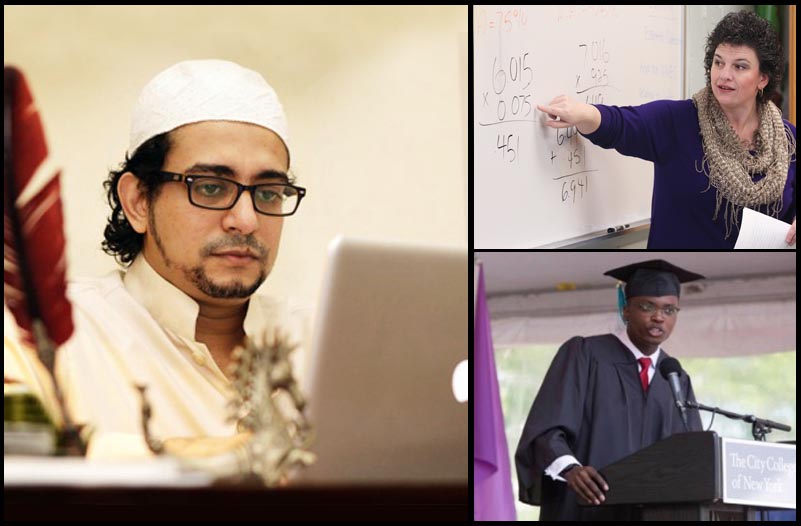News
WW Explainer: What is a Fellowship?
This post is the first in a new series of WW Explainers—brief articles that will dig a little deeper into some of the terms, methods, and background of the Foundation’s work.
Late last year, The New York Times reported that some programs which had previously offered internships to college students are now offering those same students “fellowships.” The programs haven’t changed. The skills and knowledge obtained by the students haven’t changed. The shift is happening largely because the term fellowship is seen as more prestigious than internship.
There’s a reason for that sense of prestige. The word fellow goes back a millennium or so. Its Old English root, feolaga, means “fee-layer,” a paying partner, a stakeholder. In early universities the fellows, or senior students and faculty of a college, put down a stake to pay for room, board, lodging, robes, and so on. Then endowed fellowships were created, and colleges began recruiting scholars who were talented but not wealthy by offering them a sponsored place in the college—a fellowship.
Today, of course, most fellowships further the academic and professional preparation of the student. Fellowships typically help graduate or post-graduate students pursue their degrees, engage in deeper research, or take on teaching opportunities. Fellowships almost always include financial support for the student as well.
Where an internship is more like an apprenticeship—on-the-job training, a chance for a student (typically an undergraduate) to gain workplace experience, but too often without pay—a fellowship is, at its heart, an investment in a talented future leader. Fellowships are highly competitive, and universities and employers see them as an indication that recipients have enormous potential to achieve great things in their fields.
Fellowships are the heart of the Woodrow Wilson National Fellowship Foundation’s work. Starting in 1945, when the G.I. Bill had created an urgent need to recruit talented college faculty for the United States, the Woodrow Wilson Fellowships made doctoral study possible for a new generation of the university professoriate.
Today—unlike any other national organization—Woodrow Wilson has evolved to offer fellowships across a range of fields, recruiting gifted candidates to meet national needs in specific fields:
- The Woodrow Wilson Teaching Fellowship recruits and prepares the nation’s best and brightest recent graduates and career changers with STEM backgrounds to teach in middle and high school science and math classrooms.
- The Woodrow Wilson HistoryQuest Fellowship aims to use the power of games, play, and digital tools to transform both teacher practice and student engagement. In the long term, it may also provide a new disciplinary resource for university-based teacher preparation.
- The Woodrow Wilson MBA Fellowship in Education Leadership recruits and prepares outstanding leaders for schools and districts in participating states.
- The Woodrow Wilson Dissertation Fellowship in Women’s Studies is the only national program supporting original, significant, interdisciplinary doctoral dissertations on issues of women and gender.
- The Charlotte W. Newcombe Doctoral Dissertation Fellowship supports the final year of work on Ph.D. dissertations in the humanities and the social sciences that deal with ethical or religious values, from bioethics to corporate values to the legal influence of faith traditions.
What may be even more distinctive about these Woodrow Wilson fellowships is that they all seek not only to prepare gifted leaders, but also to help change the fields those leaders are entering: to rethink preparation for those fields; to diversify those fields’ perspectives and leadership; to support them with networks of committed people who have been and are fellows; to develop partnerships of people and institutions that, like the academy’s earliest fellowships, will shape both new generations of leaders and the societies they serve.
Creating opportunity of this kind for emerging leaders, scholars, and teachers has been the essence of the Woodrow Wilson Foundation’s efforts since we were established. As the Foundation enters its seventieth year, we’re still committed to the opportunity and excellence that a true fellowship represents.
###
Have something you’d like explained? Let us know at [email protected]
This article was updated on March 21, 2016 to reflect WW’s current Fellowship programs.


